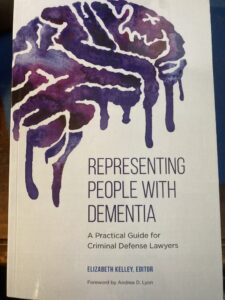People in prison do not have a choice regarding their medical care or if “cost-sharing” applies to them, unlike non-incarcerated individuals.
If counsel has any concerns, getting a mental health evaluation before the PSI is strongly recommended. If counsel cannot identify a local mental healthcare specialist, asking the prosecutor for their recommendation can be a great idea. Just ask me why.
Before making any initial designation decision, The Designation and Sentencing Computation Center staff assess each inmate’s provisional CARE LEVEL from I to IV.
BOP institutions also have a Mental Healthcare (MH) CARE LEVEL assignment, reflecting the mental healthcare resources available.
- The Designation and Sentencing Computation Center (DSCC) designates those inmates with Medical and Mental Healthcare CARE LEVEL I-II.
- The Office of Medical Determinations and Transportation (OMDT) will make the designation decision for inmates with Mental Healthcare, CARE LEVELS III-IV.
Unfortunately, the BOP is not equipped to provide any meaningful treatment for the following underlying disorders (to mention a few) – for example:
- Post-traumatic stress
- Major depressive
- Bipolar
As medical staffing varies from one facility to another, and whether care is available within the BOP, this may necessitate a transfer to a facility farther from their home.
If your client is approaching Dementia or is currently being treated,
Published by the ABA, Fay Spence, Esq., and I am proud to have contributed two chapters regarding REPRESENTING PEOPLE WITH DEMENTIA
- CHAPTER 1. What Is Dementia? Page 1, Dr. Marc Blatstein, and Faye Spence, Esq.
- CHAPTER 13. Jail and Prison Conditions, Page 155, Dr. Marc Blatstein, and Faye Spence, Esq.
- There is only one BOP location, with one wing. According to what I read last, it had only 35 beds.
L
H
L
a
a
IF YOU ARE NOT SURE WHAT TO DO FIRST, START WITH A FREE CONSULTATION FOR YOU OR A LOVED ONE. THIS IS MY PERSONAL CELL (240.888.7778), AND I ANSWER AND RETURN ALL CALLS.
a
We are not Attorneys; you need Legal Representation.
a
a
Mental Health CARE LEVEL I
- No Remarkable Issues.
- No history of regular Mental Illness Interventions, seeking help should there be a returning episode.
Mental Health CARE LEVEL II
- Routine and/or Crisis Oriented Outpatient’ Care.
- Outpatient or brief crisis-oriented care.
- Controlled with medication.
- It may require a suicide watch or brief observation.
Mental Health CARE LEVEL III
- More Severe Outpatient’ or Residential Mental Healthcare.
- May require weekly mental healthcare visits or Residential Psychology Treatment.
Mental Health CARE LEVEL IV
- ‘Inpatient’ Psychiatrist Monitored, include those who are:
- Gravely disabled and cannot function in the general population as in MH III.
- Have a current or recent historical need for inpatient psychiatric care?
- 24/7/365 nursing.
It is incumbent upon the legal defense team, in preparation for their Presentence Interview, to work with the court to get their client designated appropriately should there be an accurate ICD MH diagnosis that would require greater care.
a
Through my story, this video explains why finding the right attorney for you is important. Although this is your life-altering event, preparation and Knowledge of what you are about to do could still result in a positive outcome. Knowing that the DOJ has a 98% conviction rate, what is a positive outcome for you? Learn from my experiences through my video.
NEW Reentry Act legislation is introduced that expands access to health care, including mental health services and substance use disorder treatment, for Medicaid-eligible individuals 30 days before their release from jail or prison.
Senators Tammy Baldwin (D-WI) and Mike Braun (R-IN), 3/30/2023

